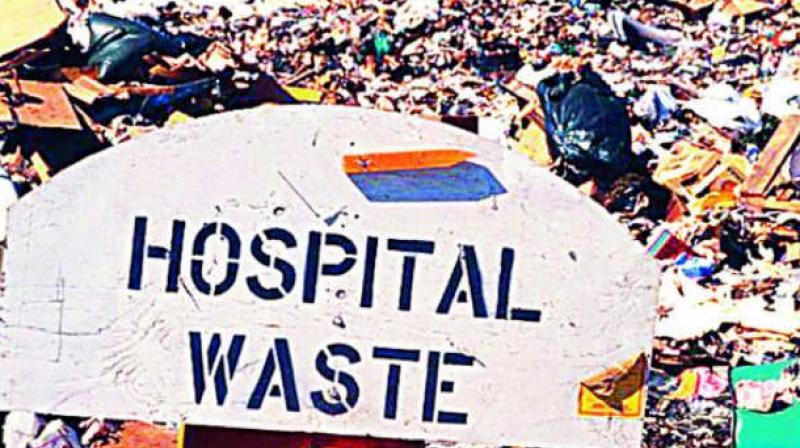Biomedical waste rules yet to be implemented in AP

Visakhapatnam: Even after a year of the Ministry of Environment and Forests mandating the use of bar-coded bags and containers for the disposal of bio-medical wastes, and the setup of sewage treatment plants (STP) at hospitals with over 100 beds, no initiatives towards implementation have been taken by the State Pollution Control Board in Andhra Pradesh.
The barcode system was made mandatory in 2016, after irregularities in the disposal of biomedical wastes came to the fore. Wastes were being collected from hospitals and burnt in the open, instead of in an incinerator at a Common Biomedical Waste Treatment Facility (CBWTF).
R. Lakshminarayana, an environment engineer from the Andhra Pradesh Pollution Control Board (Vizag), said, “The barcode system would help us track violators who dump wastes in the open, and track bags that go missing post collection. It could take up to two more months for this practice to be introduced. The segregation of medical wastes is a bigger challenge, because of a lack of knowledge among stakeholders.”
The Ministry also made the setup of STPs mandatory in order to ensure pretreatment of wastes emanating from laboratories and operation theatres, and other microbiological wastes, before their release into common drains.”
Regarding this, Mr Lakshminarayana said, “About 60 per cent of hospitals in the state that have over 100 inpatient beds, have their own STPs; the remaining healthcare facilities are yet to be covered. Earlier, hospitals used to depend on civic body STPs; but as per the new rule, they should all have their own treatment facilities.”
Vizag is more vulnerable to hazardous biomedical wastes as compared to other districts, due to the mushrooming of a large number of advanced hospitals and clinics. According to a report that was recently released by the Andhra Pradesh Pollution Control Board (APPCB), 20 per cent of the total biomedical waste that was collected from the state every day, which amounts to nearly 1,700 kg of a total of 8,415 kg, was from Vizag.

